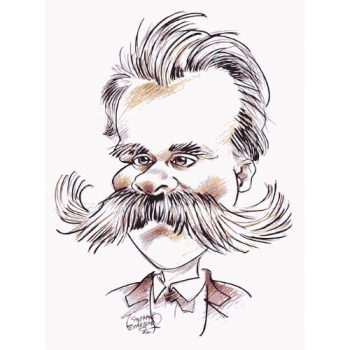“War is father of all and king of all; and some he has shown as gods, others men; some he has made slaves, others free.” (D, R, S 53)
Heraclitus here is denying some fundamental agency of humans. It is not only people that are responsible for the state of the things in the world that he mentions. It is, at least in part, “war”–Apollo, as we presume from other texts that Herclitus understands him, largely demythologized.
The language use is interesting. He “shows” or “renders” (R, 53) some gods, some men. It is forces larger than human forces that are responsible for some fundamental characteristics of the state of things.
When Heraclitus speaks of all things as strife, we often think of his musing on physics and the natural world, the transformation of fire to earth, air, water. We think of constant flux and change. As a metaphor for such shifts that can be poetically viewed as one material consuming or destroying another, talk of war appears harmless enough. When applied to human affairs, the ideological harm of language becomes clear. In sync with Heraclitus’ view here, it might appear slaves can’t but be slaves. Those who are free aren’t free by nature, but by divine agency. So an interesting enough cosmological metaphor comes to the service of the prevailing status quo. Yet the fragment appears in conflict with Heraclitus’ statements about law and others where he appears to attribute responsibility to agency. Take for example the view expressed in K 87, D 28B: “Justice will catch up with those who invent lies and those who swear to them.” (Kahn translation). Or compare “Man’s character is his fate” (Kahn translation, 114, D119) and his Fragment on law: “the people should fight on behalf of the law as (they would) for (their) city wall” (Robinson translation, D44, K65; cp. D114, K30).
